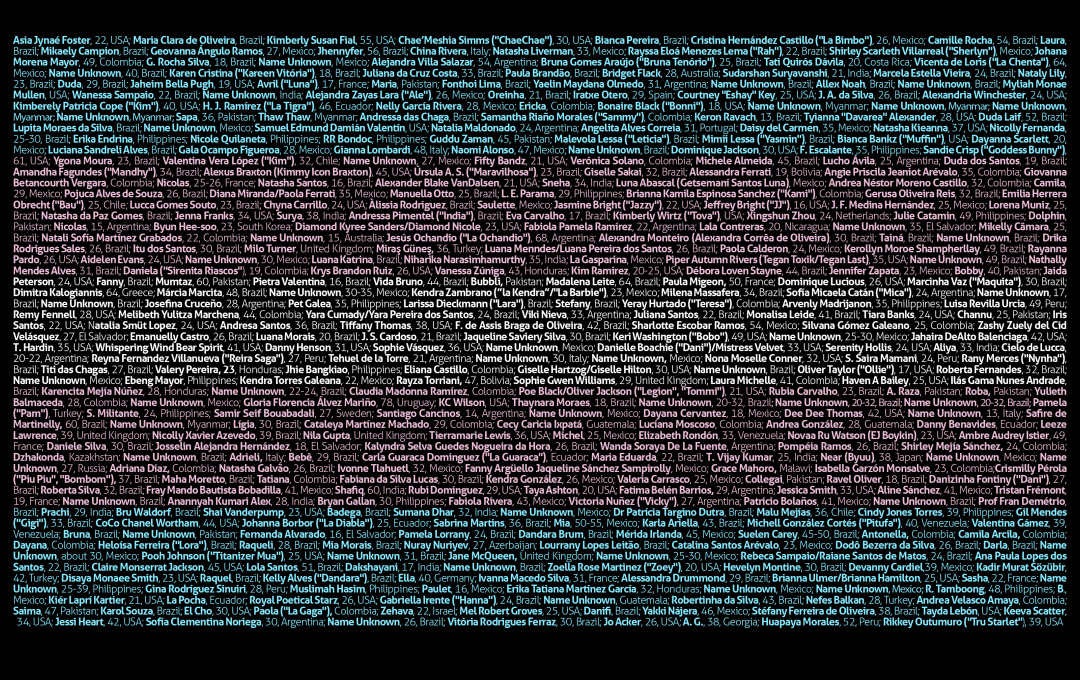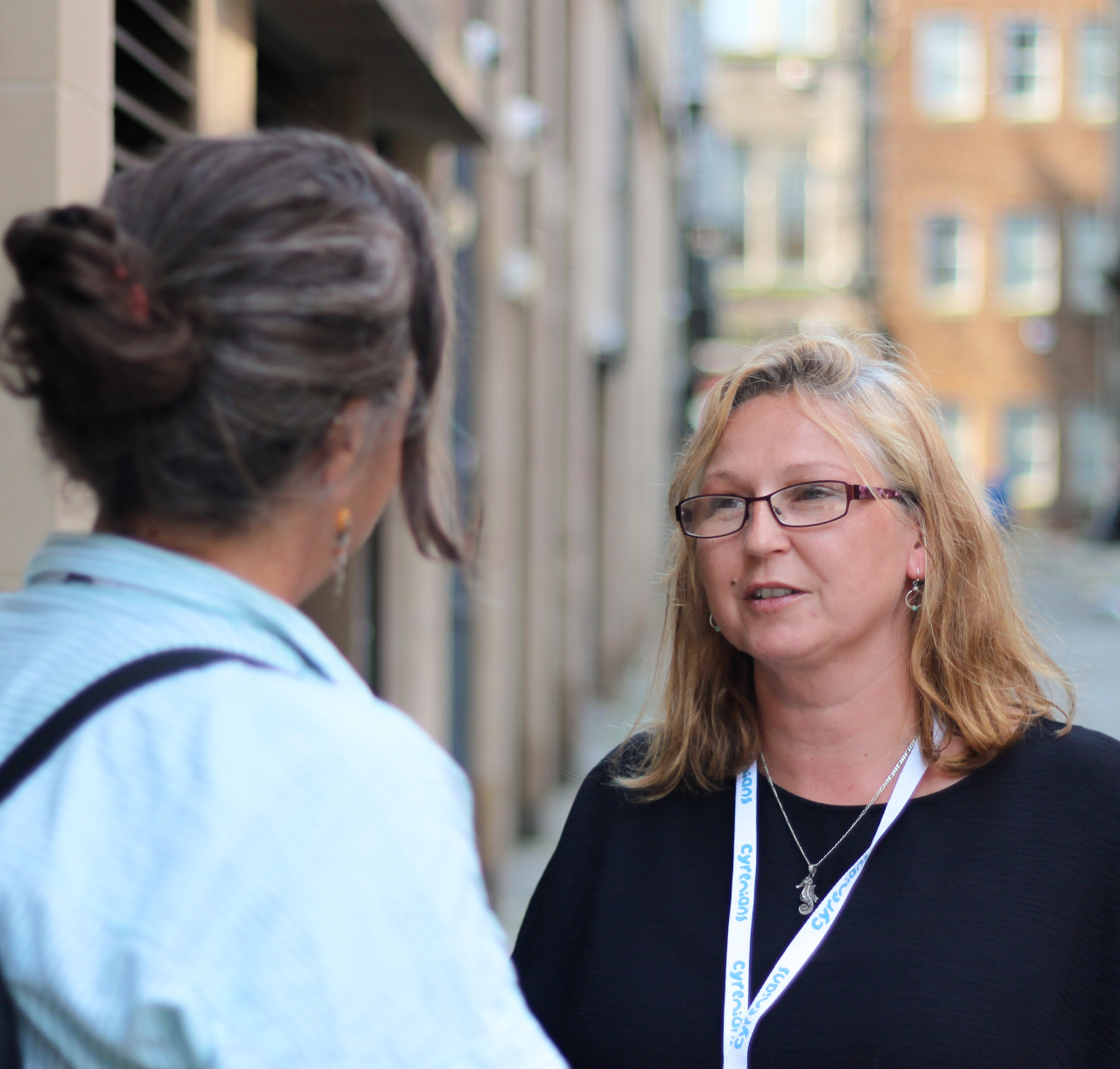Rising transgender deaths highlight need for inclusive support

The annual Trans Day of Remembrance on 20th November marks the hundreds of transgender lives lost each year to violence and suicide. The list published for today’s memorials provides only part of the picture, with countless more transgender and nonbinary people losing their lives to the disproportionate rate of domestic abuse, poverty and homelessness affecting the community.
Today we mourn the 436 people recorded by the Trans Murder Monitoring Project who have been murdered or taken their own lives in the last 12 months, as well as the many, many more whose deaths have gone unreported. The rate of trans deaths has risen sharply, with more murders recorded this year than ever before.
We must also acknowledge the ways in which transgender people, in Scotland and around the world, face higher levels of risk from homelessness, poverty, abuse and associated problems. Across the UK, as many as 25% of transgender people report having experienced homelessness in their life, compared to an estimated 15% in the population as a whole, and with housing discrimination and trans-specific barriers to employment affecting 25-60% of trans people, at least half of trans people in Scotland are estimated to be living in poverty.
Overwhelmingly, trans homelessness is connected to lack of acceptance, hostility and outright violence from family, partners and the wider community. Over 80% of young trans people in a recent UK-wide survey of homeless LGBTQ+ youth said that their families didn’t support them when they were facing homelessness. Many are pressured to stay in the closet, with more than half of trans respondents saying that they had been afraid to come out to their family members for fear of being kicked out, and almost two thirds saying their families actively prevented them from coming out.
Beyond being forced into the closet, trans people are at disproportionate risk of abuse at home. More than a quarter of trans people in Scotland have experienced violence from an intimate partner, and almost three quarters have experienced physical, verbal or sexual abuse from family members. This is often directly connected to their transness, with over 77% of young LGBTQ people directly linking their homelessness to rejection on the basis of their identity.
For trans abuse survivors and trans people experiencing homelessness, support is often difficult to access. A majority of trans people in homelessness feel that services are poorly equipped to handle their specific needs, and many avoid interacting with mental health and medical support services because of an expectation that they will be misgendered or treated differently on the basis of their gender identity. In a time when transgender people’s access to services and shelters has become a heated topic, accessing support is only becoming more difficult and daunting.
All this in mind, it is little surprise that poor mental health and suicidality are an enormous concern amongst trans people. Depression and post-traumatic mental health disorders affect almost three quarters of trans people, contributing to a higher rate of alcohol and drug misuse, self-harm and suicidality. Over half of trans people in Scotland have attempted suicide at some point in their lives, and of the five UK residents who appear on this year’s Remembrance list, all committed suicide.
Trans Day of Remembrance is an annual reminder of our responsibility to do right by vulnerable trans people. By tackling the causes and consequences of homelessness across all communities, and by building services that understand and respond to the specific issues faced by transgender people, we can change the picture. The disproportionate rates of suicide, abuse and homelessness affecting the trans community is not inevitable – all of us can do our part to tackle it.
If we work together to confront bigotry and bias in our communities, develop our own knowledge and understanding of transgender experiences and issues, and offer care, support and openness to trans people around us, whether they’re in our family, workplace or wider community we can help to eradicate the hostility trans people face which often results in abuse and homelessness.
Support services and organisations also have a significant role to play. All services dealing with vulnerable people have the responsibility to educate staff and build strategies to meet the specific needs of LGBTQ+ service users. We should all commit to considering LGBTQ+ issues, developing our services and staff understanding of trans needs, and opening channels to help trans service users feed back on where we can do better, and then act on that knowledge to make genuinely inclusive services. Building trans-inclusive support is an ongoing process, but it is deeply valuable and it can save lives.
At Cyrenians, we’re working every day to provide safe, accessible services for all and are committed to continuing to improve. Services like our mediation and support programmes can help avoid the kinds of catastrophic relationship breakdown that are the biggest contributor to transgender homelessness, working with families to explore how they can best meet their child’s needs and, where necessary, helping young people navigate a safe, supported route to moving out. We also provide supportive community spaces for young people experiencing social isolation through projects like Creative Natives.
If you are in need of support yourself, or know someone who may benefit from speaking with our mediation and support services, please get in touch.
More about our work
Do you need support?
If you or someone you love is in a precarious situation, we want to help. Cyrenians run over 50 services in South-East Scotland, from housing support to mediation to food provision and skills training.
